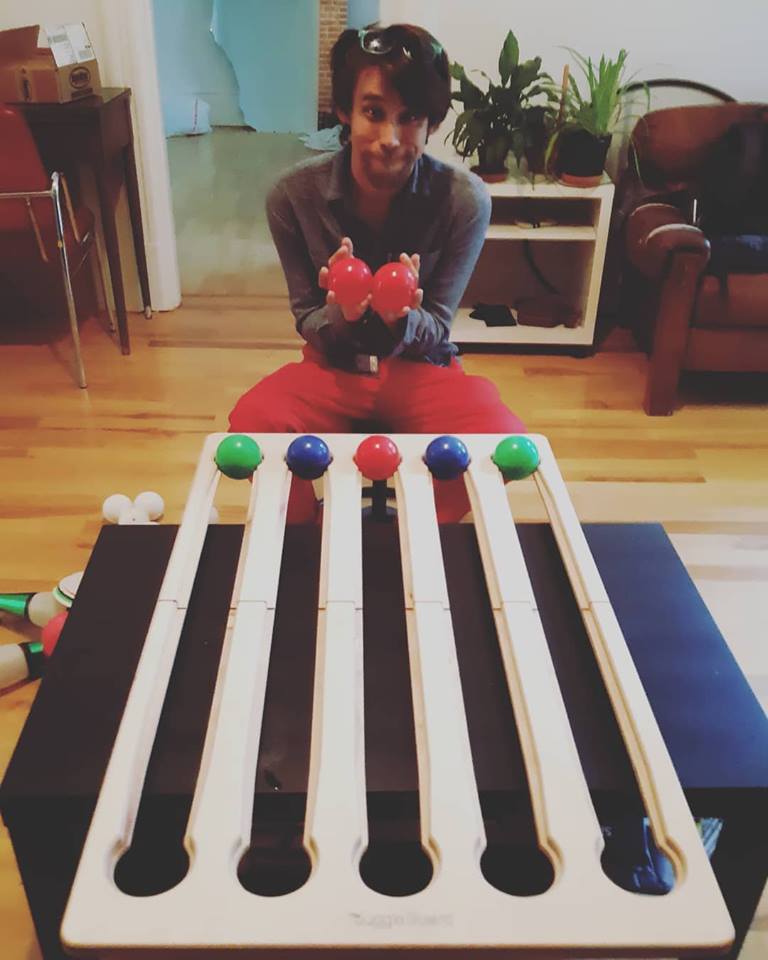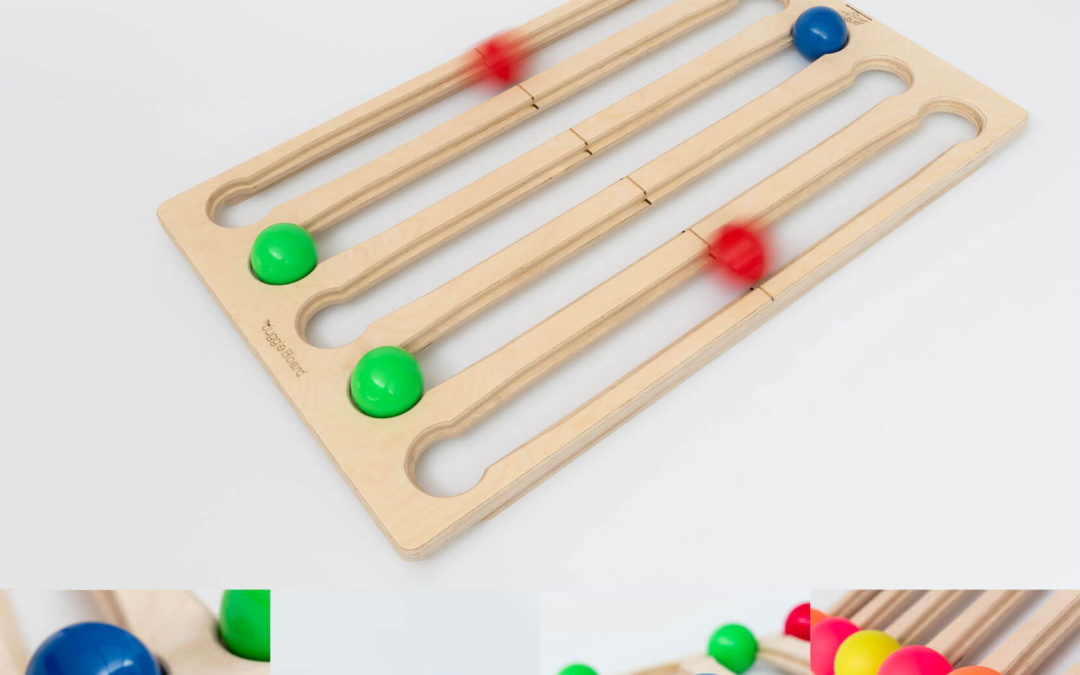(Please note that all of the quotes presented here are actually paraphrased, but written as quotes to denote speaking. I don’t have a direct recording to be completely accurate of his word choices, but attempted an approximation for a feel of who Quat is.)
Craig Quat walks into the room with a large bounce in his step. “I need a few minutes to relax before we start, I just had an 8 hour meeting” he says. He was meeting with Cirque du Soleil to consult with them about their new family entertainment centers. “But first, who are you?” he asks.
I tell him that I am a juggler, and more recently, a mom. “Being a mom is juggling. Changing a diaper requires bilateral precision through space and time. You have to unfold the diaper and hold a baby while they try to roll and anticipate their movements so you can get it in the right spot.” he pauses. “Everything is juggling”.
It seems to me like this is his motto.
Quat is a bundle of passion and vibrance who talks fast about deep concepts with a strong penchant for ethics. He is highly researched with a sureness about the importance of his work, but feels a need to continue researching and do more trials. One thing that’s for sure, he cares for, and understands his students like no other teacher I have ever seen.
Most of his energy revolves around helping people learn about juggling. He will tell you a dozen juggling related neurological facts. “Juggling increases the brain mass by 5 percent after 6 weeks of practice for only approximately 10 hours of work” he states, telling us about how it’s a skill that uses the whole brain, because of the complexity of juggling and need for each quadrant of the brain to be activated while doing it. He tells us about how it improves executive functioning, helps us resolve cognitive dissonance and it also can induce flow states.
This all started 8 years ago when he was running a circus studio in New Jersey. He really struggled with the fact that our current way of teaching juggling had such a high rate of failure. He wants to share what a juggling induced flow state feels like, but when teaching it in the conventional way, it’s common to lose about 70% of your students. They all end up feeling like a failure. He notes his students will tell him about their lack of coordination, and he saw they needed emotional guidance through this learning process. This is the reason behind the development of Quat Props, and more specifically in this instance, the Juggle Board.

One of his main focuses on his students was how afraid they were to fail. “We are afraid of learning because learning is synonymous with failure.” he states, “they are the same thing”.
Much of the difficulty in learning was not about the development of motor skills. Quat believes everyone does complicated motor tasks everyday, so it’s not the physical complexity that makes it difficult. But if not, what is it? This began Quat’s quest and he switched focus of his energy on teaching the cognitive components of juggling separately. He says it’s like using “training wheels” to help the person understand the motion of the balls in the hands. He is also giving a boost to the emotional components of learning, always allowing the student to be successful.
The most important factor of his teaching style is attunement with his students. He is witnessing them fully and giving them the feedback they really need to learn and move forward. He is confident enough to push his student gently – so they always succeed, but also gentle enough to not go too far. This type of focus on a student is unheard of in many learning systems that we have today. But it’s what’s really necessary to help an individual achieve a flow state – which makes learning exponential and gives a huge hit of dopamine to the student, making them happy to try harder.
Quat turns ideas about how we learn on its head. He questions the school system and way we’ve been teaching. First, He recognizes that our current methods of teaching have unintended consequences & messages: that failure and mistakes are bad. This creates shame and ends up holding many people back from learning new things. Second, We have 3 ways of understanding new concepts: motor skills, cognitive understanding and emotional processing. Currently, when teaching juggling, we only address motor skills learning. We need to address emotional and cognitive learning before technical proficiency can be achieved. Third, Emotional learning is largely ignored, but is actually vitally important to the process.
He has created new props, addressing both the cognitive and emotional learning first, before attempting proficiency in motor skills. He rejects hierarchy of technical skill frameworks, opting instead for a inclusive stance “juggling is for everyone. No really, I mean everyone!”. Once the props were created he put his ideas into open source documents. His rejection of capitalist frameworks is an attempt to bring all these new ways of learning to anyone who would listen.
Quat rejects power-over instruction styles, adapting everything to a power-with framework, to allow for experience based learning. He notes that anyone who juggles already learned from experience anyway, but by removing the technical barriers of motor skill learning, everyone can have the experience to learn faster, easier and with less emotional frustration. He then teaches traditional juggling styles this through storytelling, building trust and developing silly games. This allows for 2 things: First, an emotional bypass where the focus is on the story and the game instead of attempting to think cognitively about each movement. Too much focus on the discrete tasks of the hands and body is actually confusing and causes more problems. Instead, creating big picture learning allows for his students to grasp the bigger concept. Second, the stories give variations to the sequential repetition necessary for building the neural pathways that allow a person to juggle.
He had an enormous passion that’s contagious, and inspirational. He will make your brain connect all types of ideas together – ideas he’s already considered.
If you get the chance, reach out to Craig and bring his ideas about functional juggling to your local club. This will inspire so many people if we can spread the word!


Recent Comments